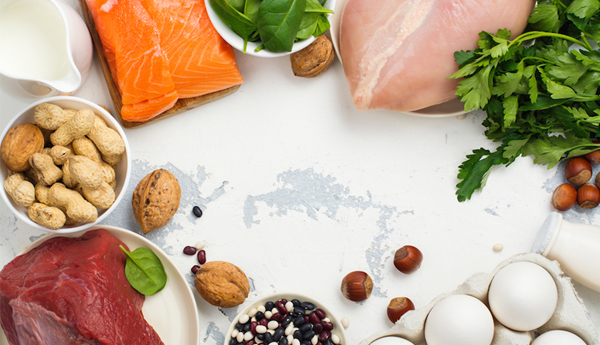If you want to know the ins and outs of the latest diet trends, here is the lowdown on some of the most-frequently-asked-about popular celebrity diets.
FODMAP Diet
The FODMAP diet, while originally designed to bring relief to the irritable bowel crowd, is now growing in popularity among Hollywood celebs. FODMAP is an acronym that stands for Fermentable Oligosaccharides Monosacaccharides and Polyols. Basically, this refers to types of sugars that are poorly absorbed in the intestines which some people are more reactive to. When these sugars reach the large intestine the bacteria in the gut can begin to ferment them, which can cause bloating, pain and wind. The FODMAP diet eliminates fodmap foods, thereby reducing abdominal discomfort. In theory this all sounds wonderful, however following a FODMAP diet can be extremely restrictive as it does limit many foods.
FODMAP foods to avoid include:
-
Dairy products
-
Grains – barley, rye, wheat, semolina, couscous, bread, pasta, cake, etc.
-
Many fruits and vegetables
-
Legumes
There are a lot of foods that contain these sugars, therefore sticking to the FODMAP diet as a way of life is restrictive.
-
PROS: Many people find relief from uncomfortable tummy problems by following a FODMAP diet.
-
CONS: A very restrictive diet that can become mundane and limited. Cutting out foods could put you at risk of nutritional deficiencies if you do not ensure you are eating a variety of different nutrient containing foods every day.
Ketogenic Diet
The ketogenic diet involves dramatically reducing carbohydrate intake to just 50 – 30 g of carbohydrates a day and replacing this with fat. The reduction in carbs puts your body into a metabolic state called ketosis. Ketosis occurs when fat is turned into ketones in the liver creating fuel for the body. The body usually relies on carbohydrates for energy production, and the brain relies on glucose to stay mentally alert. So when this is unavailable it will burn fat to supply fuel. If insufficient fat is eaten then the body will turn to its own fat stores ,which in turn leads to weight loss.
Ketogenic diets are therefore an effective way to lose weight and may even help to reduce high blood sugar and insulin.
Ketone bodies are supplied when the body does not have an instant energy or glucose source. This occurs when carbohydrate intake is kept to a minimum but also when the body is fasting, starving, during prolonged exercise and as a result of type 1 diabetes. If the brain does not receive an adequate regular supply of glucose we will die, which is why the body will do anything it can to produce fuel from a different source – i.e. fat,
Some keto diets promote as little as 5 – 20 g of carbohydrates a day. Carbohydrates are contained in a variety of foods such as bread, rice, pasta, whole grains, fruits and starchy vegetables.
1 slice of white bread =18 g of carbs.
1 cup of oats = 45 g
-
Pros: Quick and reliable way to lose weight. This diet can be beneficial to health by reducing consumption of inflammatory high sugar foods and refined carbohydrates.
-
Cons: Cutting out carbohydrates to the degree that is required for the body to go into ketosis makes the diet very limited and potentially anti-social to follow. Cutting out food groups for a long period of time may also put the body at risk of nutritional deficiencies. This means a higher fat and protein intake leading to possible overconsumption of saturated fats and proteins.
Vegan
Another very popular diet trend is the vegan diet. Vegan diets completely cut out all animal-derived products including butter, milk, cheese and eggs. Plant-based diets have been associated with a myriad of health benefits which may be due to plants being high in phytonutrients, antioxidants and fibre, all of which lower our risk of disease. Excluding animal-based products completely from the diet can put you at risk of becoming deficient in several important nutrients, particularly Vitamin B12, protein, taurine, zinc, choline and iron.
Lacto vegetarians eat a plant-based diet that includes eggs and dairy which will provide a broader array of nutrients and puts them less at risk of nutritional deficiencies than a completely vegan diet.
A vegan diet needs to be meticulously planned for to avoid becoming nutritionally deficient. Unfortunately, many vegetarians simply cut out animal foods without carefully planning their foods, which does put them at risk of becoming malnourished.
-
Pros: High plant based diets have a lowered risk of disease
-
Cons: Cutting out food groups completely may put you at risk of nutritional deficiencies.



